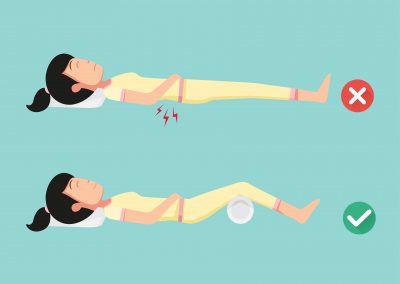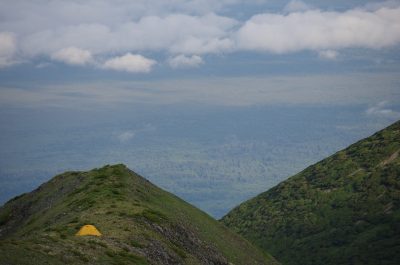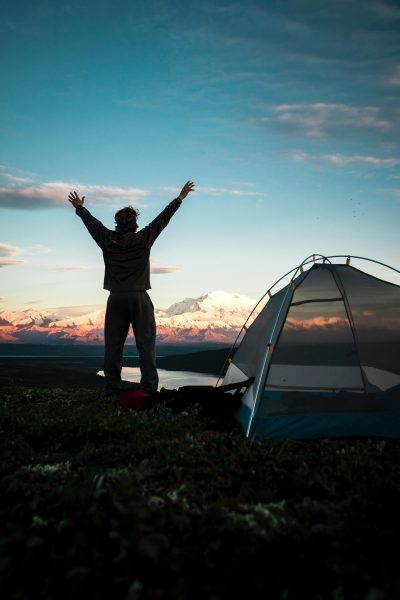To Sleep, Perchance to Dream
It’s 2 o’clock in the morning. You’re lying in your tent, wide awake. You start to wonder many things. “Will I ever be able to fall asleep?” “Is it morning yet?” “What’s that noise?” “How is he/she sleeping so soundly?” “Why did I even go camping in the first place?” These are the thoughts that go through your brain during another sleepless night on the campground.
The ability to sleep well while camping is, in my opinion, the main thing that separates “happy campers” from those who dislike the activity. Anybody can pitch a tent, cook outdoors, and sit around a campfire, but if you can’t fall asleep when its time to crawl into your tent, any enthusiasm you had for camping will quickly fade.
Good news! There are a few ways to greatly improve your camping nights’ sleep, and ensure that camping is actually a restful activity (or at least, not an automatic all-nighter).
1. Put your backpack under your knees.
If you sleep on your back, sleep experts advise sleeping with a pillow under your knees, even in a regular bed. This can be even more advantageous when camping. Elevating your knees reduces stress on your spine, and can remove tension in your lower back generated by lying on a less-than-ideal surface:

You probably won’t have a firm pillow available while camping, so sliding your backpack under your knees can be a great way to ease the tension in your back and anchor you in a more comfortable sleeping position.
2. Make sure your sleeping area is level.
If you’ve ever tried sleeping at an angle with your feet higher than your head, you know how much your body will reject this unnatural posture. Similarly, sleeping with one side higher than the other will send warning signals to your brain, keeping you awake when you want to rest. When pitching your tent, try to pick the most level area you can find.

However, since it’s unlikely you’ll find a completely level spot, position your sleeping bag with your head facing uphill. This is the sloped position your body will accept most readily. Additionally, the increased friction of positioning your body parallel with the slope will reduce how far you slip downhill over night.
3. Use natural sleep aids.
When camping, melatonin is your friend. Melatonin is naturally produced by your body, and supplements are regularly prescribed for insomnia or sleep disorders. The CDC has not yet labeled “leaving your home to sleep on the ground in the woods” as a sleeping disorder, but taking melatonin when camping can be a great way to fall asleep (or fall back to sleep when that twig snapping wakes you up). There are also melatonin supplements formulated for kids, which can be useful if you have kids along on your camping trip. Kids are often too excited to sleep while camping, and if you’re sharing your tent with wide awake children, you’re probably not sleeping either.
Conclusion
You can spend tons of money on gear, travel, and picturesque destinations, but you won’t enjoy camping if you can’t sleep. Investing in a few bedtime innovations will go a long way toward making your camping trips enjoyable, and making yourself a more proficient camper. Think about what YOU need to sleep well, figure out how to make it fit in your pack or load out, and then make plans to have the best sleep of your life on your next camping trip. Or at least, the best sleep you’ve ever had in the wild.


 WISHLIST
WISHLIST



Leave a comment